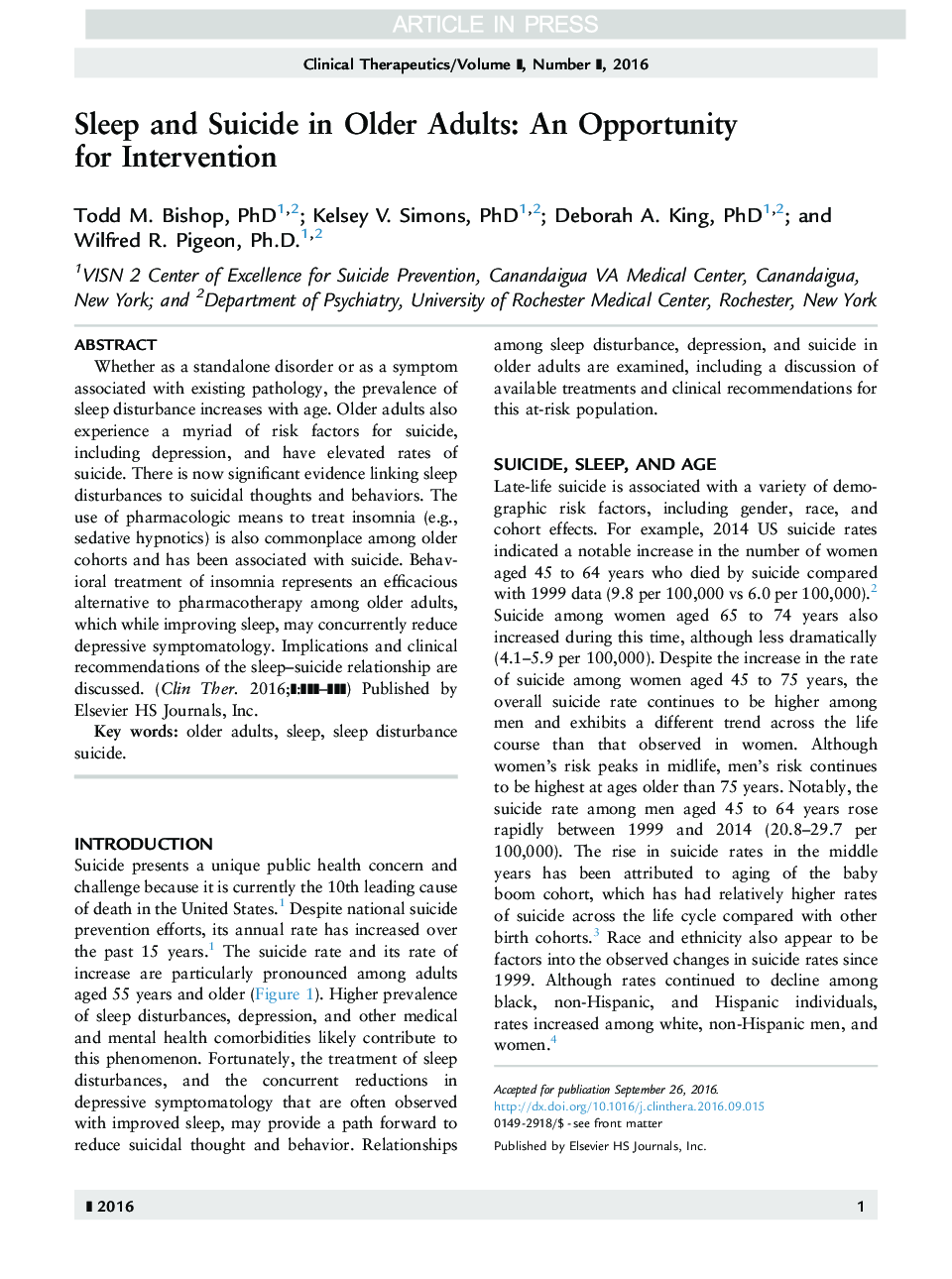| Article ID | Journal | Published Year | Pages | File Type |
|---|---|---|---|---|
| 5554169 | Clinical Therapeutics | 2016 | 8 Pages |
Abstract
Whether as a standalone disorder or as a symptom associated with existing pathology, the prevalence of sleep disturbance increases with age. Older adults also experience a myriad of risk factors for suicide, including depression, and have elevated rates of suicide. There is now significant evidence linking sleep disturbances to suicidal thoughts and behaviors. The use of pharmacologic means to treat insomnia (e.g., sedative hypnotics) is also commonplace among older cohorts and has been associated with suicide. Behavioral treatment of insomnia represents an efficacious alternative to pharmacotherapy among older adults, which while improving sleep, may concurrently reduce depressive symptomatology. Implications and clinical recommendations of the sleep-suicide relationship are discussed.
Keywords
Related Topics
Health Sciences
Medicine and Dentistry
Medicine and Dentistry (General)
Authors
Todd M. PhD, Kelsey V. PhD, Deborah A. PhD, Wilfred R. Ph.D.,
